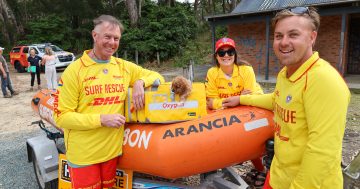 1. This week 10 years ago, NSW Premier, Barry O’Farrell announced plans to deliver up to 171,700 new homes in 31 new and existing suburbs across Sydney in one of the State’s biggest ever housing supply programs.
1. This week 10 years ago, NSW Premier, Barry O’Farrell announced plans to deliver up to 171,700 new homes in 31 new and existing suburbs across Sydney in one of the State’s biggest ever housing supply programs.
Mr O’Farrell said a wide range of housing types would be built to suit all budgets in existing suburbs and in new release areas, with jobs, shops, schools, parks and transport all close by.
“We understand people are concerned about rising housing costs in Sydney and the delivery of these new homes will assist in improving housing affordability,” Mr O’Farrell said.
He said the new houses would be supported by a $61.8 billion infrastructure program.
2. In Victoria, Attorney-General, Robert Clarke said the signing of a third Aboriginal Justice Agreement (AJA) would help address Koori disadvantage and over-representation in the justice system and embodied a commitment on behalf of various Government Agencies to achieve improved justice outcomes for Aboriginal Victorians.
Mr Clarke said the new agreement set out a five-year roadmap to reduce the levels of incarceration, offences and victims in the Koori community and included six key objectives: crime prevention and early intervention; strengthening diversion programs and other alternatives to imprisonment; reducing the rate of reoffending; reducing conflict, violence and victimisation; responsive and inclusive services; and strengthening community justice responses and increasing community safety.
3. Also in Victoria, Phillip Island was declared the State’s first National Surfing Reserve, with Minister for Environment and Climate Change, Ryan Smith saying the island was chosen for its world-class beaches, outstanding surfing conditions and culture, and wonderful flora and fauna.
Mr Smith said the Reserve comprised four sites — Cape Woolamai, Smiths Beach, Summerland and Cat Bay — as part of the self-funded voluntary collaboration dedicated to recognising and protecting iconic surfing sites in Australia and globally.
“These sites are recognised throughout Australia and the world and attract tens of thousands of surfers and tourists each year, bringing money to the Victorian and local economy and supporting local employment,” Mr Smith said.
4. The Federal Government took on a greater role in protecting water resources impacted by coal-seam gas (CSG) operations and the activities of large coalmining developments.
Minister for Environment, Tony Burke said an amended Environment Protection and Biodiversity Conservation Act 1999 would require Commonwealth assessment and approval of CSG and large coalmining developments that had a significant impact on a water resource.
“Australia’s water resources are among our most vital natural resources and it is important that we ensure they are protected,” Mr Burke said.
“The proposed amendments will ensure that CSG and large coalmining developments must be assessed and approved under national environment law.”
5. The Federal Government announced the establishment of an independent Asbestos Safety and Eradication Agency to work with the States and Territories to develop a nationally consistent approach to asbestos eradication, handling and awareness, including environmental and public health issues.
Federal Minister for Employment and Workplace Relations, Bill Shorten said Australia’s history of widespread use of asbestos had left a deadly legacy of asbestos-containing material in the built environment.
“It’s been almost a decade since asbestos was banned in this country and still, today, the dangers of this silent killer remain,” Mr Shorten said.
“Asbestos is the worst industrial menace that will go on killing for decades.”
6. And a decade ago, the WA Parliament passed new laws making the filming or distribution of humiliating or degrading images a criminal offence, including the filming or distribution of lewd or explicit material without the subject’s consent, to carry up to two years’ imprisonment.
Attorney-General, John Rau said the State’s laws needed to respond to the disturbing and growing phenomenon of the internet being used to distribute videos and images that embarrassed and humiliated others.
“Intimate images of a private nature, such as those of a former partner, are also being uploaded by some people,” Mr Rau said.
“When material like this is uploaded and viewed by others, the person is re-victimised.”











